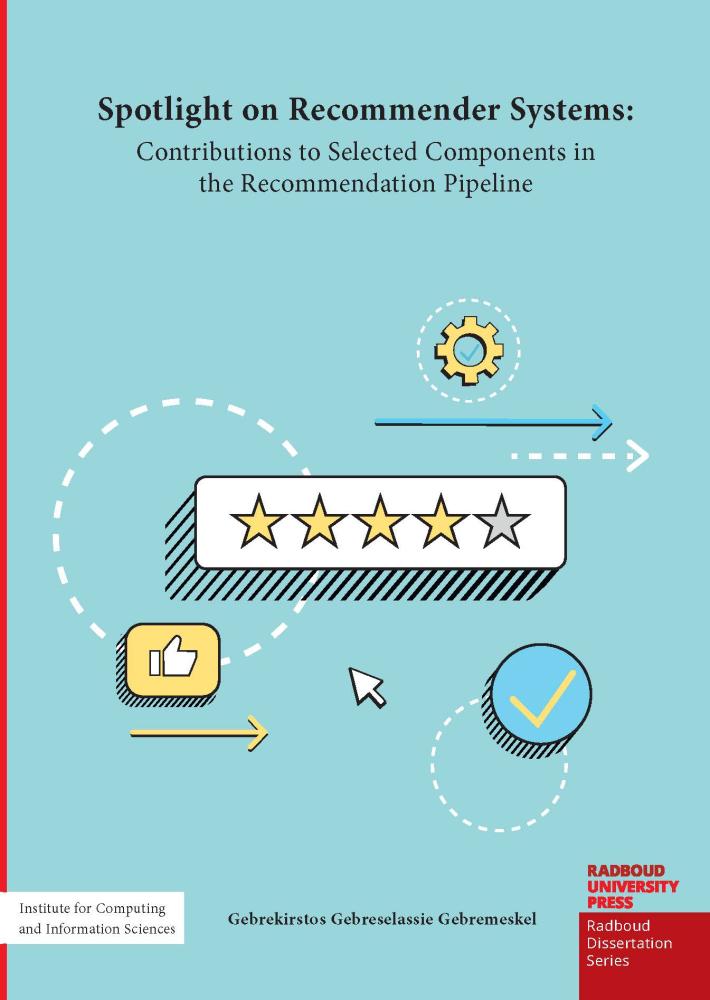Spotlight on Recommender Systems: Contributions to Selected Components in the Recommendation Pipeline
Keywords:
Recommender systems, Information Retrieval, Personalization, News Recommendation, Artificial Intelligence, Neural NetworksSynopsis
This thesis explores key components of recommender systems across three themes, structured in ten chapters. The first theme, Cumulative Citation Recommendation (CCR), focuses on automating and maintaining knowledge bases like Wikipedia by ranking documents based on their citation relevance. Emphasis is placed on the filtering stage of CCR and how different feature sets and machine learning algorithms interact. Findings show that simple string-matching methods can outperform complex models, that feature choice crucially affects algorithm comparisons, and that filtering quality significantly impacts performance.
The second theme, News Recommendation, centers on evaluation methods and the role of geography. It examines how user and content geography influence consumption, and evaluates systems through A/A tests, online and offline methods, and multi-year comparisons. Results reveal significant discrepancies between offline and online evaluations, highlighting the role of random fluctuations in system performance.
The final theme, Measuring Personalization, proposes a user-centric metric that quantifies how users respond to personalized recommendations. It measures the extent to which users align with or diverge from differentiation imposed by the system, based on their interactions with shared or unique recommendations.
Together, these themes contribute practical insights into recommender systems, their evaluation, and the balance between personalization and user behavior.

Downloads
Published
Series
Categories
License

This work is licensed under a Creative Commons Attribution-NonCommercial-NoDerivatives 4.0 International License.


